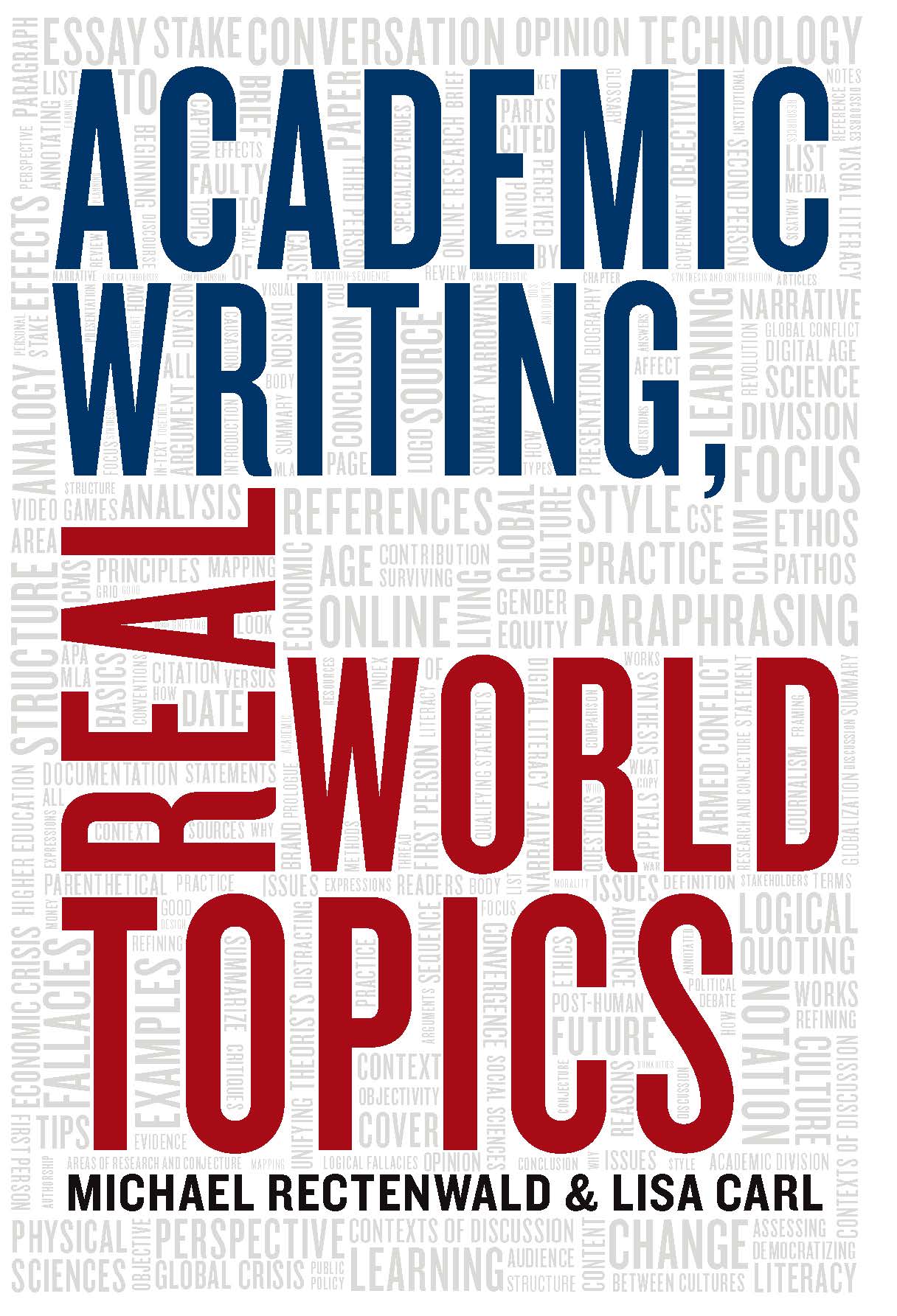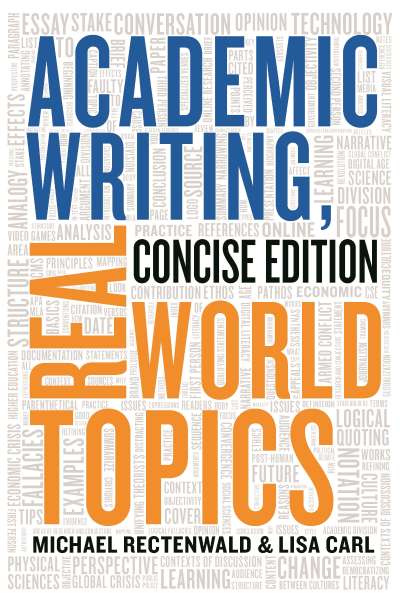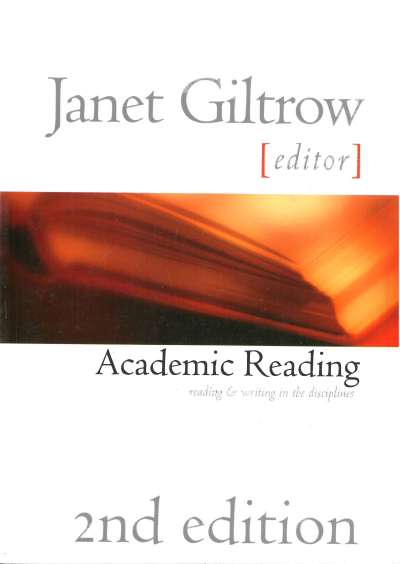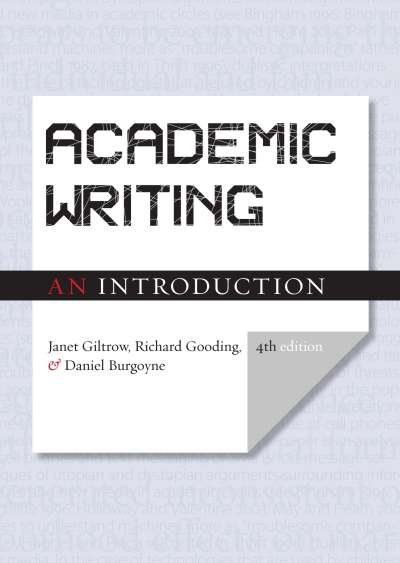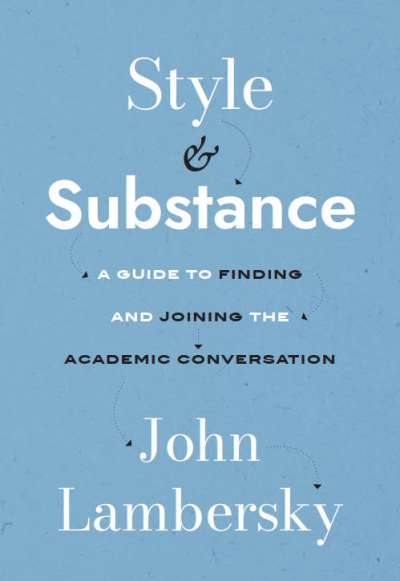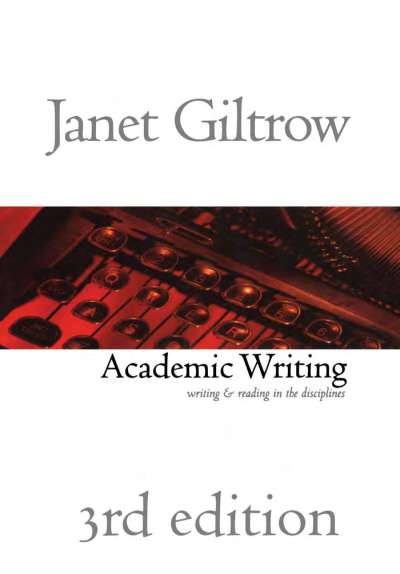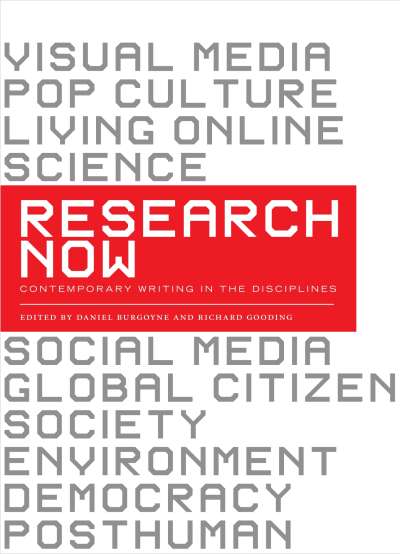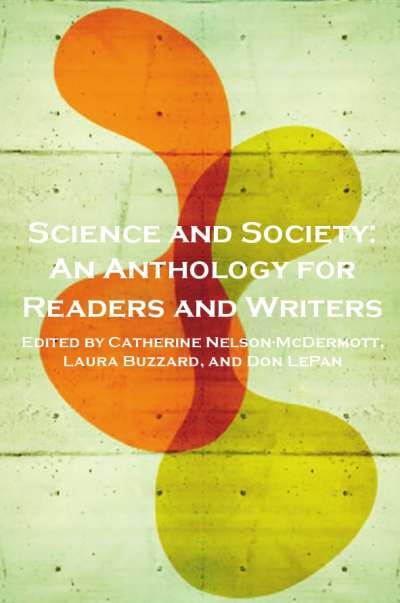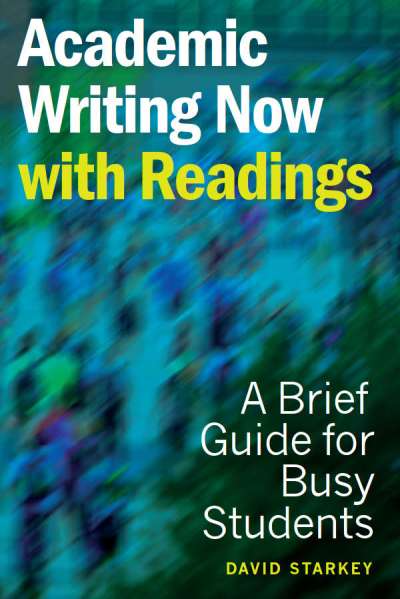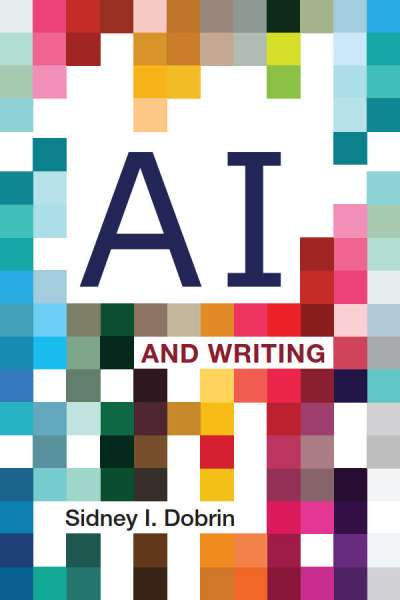Academic Writing, Real World Topics fills a void in the writing-across-the-curriculum textbook market. It draws together articles and essays of actual academic prose as opposed to journalism; it arranges material topically as opposed to by discipline or academic division; and it approaches topics from multiple disciplinary and critical perspectives. With extensive introductions, rhetorical instruction, and suggested additional resources accompanying each chapter, Academic Writing, Real World Topics introduces students to the kinds of research and writing that they will be expected to undertake throughout their college careers and beyond. Readings are drawn from various disciplines across the major divisions of the university and focus on issues of real import to students today, including such topics as living in a digital culture, learning from games, learning in a digital age, living in a global culture, our post-human future, surviving economic crisis, and assessing armed global conflict. The book provides students with an introduction to the diversity, complexity and connectedness of writing in higher education today.
Part I, a short Guide to Academic Writing, teaches rhetorical strategies and approaches to academic writing within and across the major divisions of the academy. For each writing strategy or essay element treated in the Guide, the authors provide examples from the reader, or from one of many resources included in each chapter’s Suggested Additional Resources. Part II, Real World Topics, also refers extensively to the Guide. Thus, the Guide shows student writers how to employ scholarly writing practices as demonstrated by the readings, while the readings invite students to engage with scholarly content.
Comments
“Academic Writing, Real World Topics promises to be an ideal resource for college-level writing instruction. For students, the organization of the book will be helpful as it guides them through the process of writing and then provides real examples of writing in different disciplines. For instructors, the pairing of those examples with the writing process will simplify classroom instruction and allow for focus on particular issues relevant to the students. I am looking forward to using the book in my own writing seminars.” — Jacob Sauer, Vanderbilt University
“Rectenwald and Carl’s emphasis on discourses surrounding digital culture, transhumanism, and globalization will convince first-year writing students not only that they have something to say about these big issues, but also that their ideas matter and that there are many ways to participate in the conversation. Academic Writing, Real World Topics will model for students—as emerging scholars—the multiple approaches writers take to addressing and engaging with social, cultural, scientific, and technological change.” — Keaghan Turner, Coastal Carolina University
“With Academic Writing, Real World Topics, Rectenwald and Carl have prepared the definitive writing-across-the-curriculum textbook. This book engages students and teachers in lively and robust topics, but it also introduces them to the world of academic disciplines and their various concerns. The topics are compelling, and the concise introduction to academic writing is thorough and easily digested. This book will function not only for introductory writing sequences and WAC courses, but also for first-year seminars and other introductory surveys. There is simply no better book that I have seen for introducing students to both college-level writing and academic discourses more generally. I recommend it for instructors who wish to engage their students in productive scholarly writing and discussion, and also for those who strive for broader and deeper intellectual activity.” — Tamuira Reid, New York University
“What excites me about Academic Writing, Real World Topics is that this book is unapologetically smart, contemporary, and multi-disciplinary. It does a great job at presenting the anatomy of an argument as well as providing examples from a range of disciplines. Throughout, the book emphasizes the connection between logic, grammar, and rhetoric. The result is a systematic approach that makes students aware of how authors use language to create ideas. The emphasis on language in this text will ensure that students develop the reading and writing skills necessary to strive in college—something every text promises but rarely delivers. Finally, it is worth reiterating that the readings consist of contemporary essays in political science, sociology, education, information technology, and literary theory. This will engage students in the issues as well as prepare them as academic writers.” — Jacob Singer, Professor of Academic Writing
Comments from students using Real World Topics
“Academic Writing: Real World Topics is a book that boldly discusses the real-world problems that the new generation is now facing … The book helped me, as a student, to organize my thoughts on the emerging global culture through the lenses of renowned scholars. This collection helps students apply their growing writing skills to real topics that are applicable and important to school as well as to the rest of their lives.” — Georgia Grace Larsen, Sophomore in Media, Culture, and Communications, New York University
“Academic Writing, Real World Topics is an excellent resource for students in the twenty-first century. This book is engaging and easy-to-follow, as it is organized by thought-provoking and pertinent topics … As a student who used this book in a first-year writing seminar, I found it to be an excellent introduction to scholarly writing. Rectenwald and Carl break down various types of college-level writing into approachable steps, guide readers through each of those steps, and include a carefully-curated selection of essays that spark spirited discussions that extends well beyond the traditional boundaries of the classroom.” — Hon-Lum Cheung-Cheng, Sophomore in Politics at New York University
A Preface for Instructors
PART I: ACADEMIC WRITING: A GUIDE
- Introduction
- The Basics
Formal Writing—What’s That?
- Real World Topics
- The Readings
Reading as a Writer
Focus: Annotating a Text
Digital and Visual Literacy
- Academic Writing: Contributing to a Conversation
- Contributing to an Academic Conversation
- Humanities: Philosophy
Social Sciences: Political Science
Physical Sciences: Climatology
- Research: Finding Reliable Sources
Focus: Conducting Online Research
Research Methods
- Humanities: Literary Theory
Social Sciences: Economics
Physical Sciences: Neurology and Psychiatry
- Here’s Where You Come In: Entering the Conversation
- Writing with a Purpose
- The Topic
- Issues
Practice Session
Expressions of Purpose and Topic
- Humanities: Interdisciplinary Studies
Social Sciences: Political Science
Physical Sciences: Physics, Philosophy of Science
- Narrowing Your Topic
- The Thesis Statement
- Framing a Working Thesis
The Claim
Reasons
Sample Thesis Statements
- Humanities: Philosophy
Social Sciences: Sociology
Physical Sciences: Neurology and Psychiatry
- Qualifying Your Thesis
Practice Session
The Thesis as a Unifying Thread
Refining Your Thesis
- Audience
- Critical Theorists Imagine Their Readers
- Wolfgang Iser: The Ideal Reader
Stanley Fish: The Informed Reader
Erwin Wolff: The Intended Reader
- Constructing Your Own Ideal Reader
Writing Style: Adapt It to Your Ideal Reader
Addressing Audience
- Humanities: Literature
Social Sciences: International Relations
Physical Sciences: Philosophy of Science
- Practice Session
- Narrative Perspective
- Third Person: Perceived Objectivity
First and Second Person: Personal Stake in Narrative
Table 1: Narrative Perspective
- Evidence
- Presentation of Evidence
- Humanities: Philosophy
Social Sciences: Psychology
Physical Sciences: Environmental Science
- Appeals
- Ethos
Pathos
Logos
Table 2: Logical Fallacies
Examples of Faulty Causation Arguments
- Beginning to Write
- Parts of the Essay
- The Introduction
- Sample Introductions
- Humanities: Literature
Social Sciences: Political Science
Physical Sciences: Climatology
- Mapping
- Examples of Mapping
- Humanities: Philosophy
Social Sciences: Human”“Computer Interaction
Physical Sciences: Computer Science
- Essay Body
- Connecting the Parts
- Samples of Student Writing
- The Conclusion
- Focus: Conclusions Dos and Don’ts
Sample Conclusions
- Humanities: Philosophy
Social Sciences: Human, Computer Interaction
Physical Sciences: Mathematics, Computer Science
- Major Types of Academic Essay
- Summary
- Focus: Tips for a Good Summary
Sample Summaries
- Humanities: Literary Theory
Social Sciences: Political Science
Physical Sciences: Medicine
- Practice Session
- Synthesis
- The Synthesis Grid
Sample of Student Writing
Analysis and Contribution
- Argument
- Argument versus Opinion
Examples of Argument
- Humanities: Art History
Social Sciences: Economics
Physical Sciences: Environmental Studies
- Structure and Visual Design: Putting it All Together
- Principles of Structure
Design Basics: How Your Paper Should Look
- Humanities
Social Sciences
Physical Sciences
- Source Citation and Documentation
- MLA Style
- Templates and Examples, MLA Works Cited
- CMS Style
- CMS in Brief
CMS Author-Date Style
Templates and Examples, CMS References
- APA Style
- In-text Citation, Parenthetical Notation
Templates and Examples, APA References
- CSE Style
- In-text, Name-Year
In-text, Citation-Sequence
Templates and Examples, CSE References
PART II: REAL WORLD TOPICS
Chapter 1. Living in a Digital Culture
- Introduction
- Contexts of Discussion
Areas of Research and Conjecture
Issues and Stakeholders
As You Read
Suggested Additional Resources
- Nicholas Carr, “Is Google Making Us Stupid?” (2008) JOURNALISM
- Henry Jenkins, “Worship at the Altar of Convergence: A New Paradigm for Understanding Media Change.” (2006) MEDIA STUDIES
- Gary Small and Gigi Vorgan, “Meet Your iBrain: How Technology Changes the Way We Think.” (2008) NEUROLOGY and COMPUTER SCIENCE
- Mark Blythe and Paul Cairns, “Critical Methods and User Generated Content: The iPhone on YouTube.” (2009) COMPUTER SCIENCE and CRITICAL THEORY
- Ariela Garvett, “Tweets and Transitions: How the Arab Spring Reaffirms the Internet’s Democratizing Potential.” (2011) STUDENT CONTRIBUTION ESSAY
- Questions for Synthesis
Questions for Contribution
Chapter 2. Learning from Games
- Introduction
- Contexts of Discussion
Areas of Research and Conjecture
Issues and Stakeholders
As You Read
Suggested Additional Resources
- Sara Prot, Katelyn A. MacDonald, Craig A. Anderson, and Douglas A. Gentile, “Video Games: Good, Bad, or Other?” (2012) PSYCHOLOGY
- Sarah M. Grimes, “Getting (More) Girls into (More) Games.” (2010) MEDIA STUDIES
- Lesley S. Farmer, “Are Girls Game? How School Libraries Can Provide Gender Equity in E-gaming.” (2011) INFORMATION SCIENCE
- Kristin, McCombs, Bryan Raudenbush, Andrea Bova, and Mark Sappington, “Effects of Peppermint Scent Administration on Cognitive Video Game Performance.” (2011) PSYCHOLOGY
- Stephen R. Burgess, Steven Paul Stermer, and Melinda C.R. Burgess, “Video Game Playing and Academic Performance in College Students.” (2012) PSYCHOLOGY
- Ryan C.W. Hall, Terri Day, and Richard C.W. Hall, “A Plea for Caution: Violent Video Games, the Supreme Court, and the Role of Science.” (2011) PSYCHIATRY and LAW
- C.J. Ferguson, “A Further Plea for Caution Against Medical Professionals Overstating Video Game Violence Effects.” (2011) PSYCHOLOGY and CRIMINAL JUSTICE
- Questions for Synthesis
Questions for Contribution
Chapter 3. Learning in a Digital Age
- Introduction
- Contexts of Discussion
Areas of Research and Conjecture
Issues and Stakeholders
As You Read
Suggested Additional Resources
- Timothy D. Snyder, “Why Laptops Are Distracting America’s Future Workforce.” (2010) HISTORY
- Thomas L. Friedman, “Come the Revolution.” (2012) JOURNALISM
- Cathy N. Davidson, “Collaborative Learning for the Digital Age.” (2011) INTERDISCIPLINARY STUDIES
- Eva Kassens-Noor, “Twitter as a Teaching Practice to Enhance Active and Informal Learning in Higher Education: The Case of Sustainable Tweets.” (2012) EDUCATION
- Sarita Yardi, “Whispers in the Classroom.” (2008) HUMAN-COMPUTER INTERACTION
- John F. Freie and Susan M. Behuniak, “Paulo Freire and ICTs: Liberatory Education Theory in a Digital Age.” (2007) POLITICAL SCIENCE
- Questions for Synthesis
Questions for Contribution
Chapter 4. Living in a Global Culture
- Introduction
- Contexts of Discussion
Areas of Research and Conjecture
Issues and Stakeholders
As You Read
Suggested Additional Resources
- Bryant Simon, “Global Brands Contend with Appreciation for the Local.” (2010) AMERICAN STUDIES
- George Ritzer, “An Introduction to McDonaldization.” (2008) SOCIOLOGY
- Benjamin R. Barber, “Jihad vs. McWorld.” (1996) POLITICAL SCIENCE
- Tyler Cowen, “Trade between Cultures.” (2004) ECONOMICS
- Kwame Anthony Appiah, “Cosmopolitan Contamination.” (2006) PHILOSOPHY and AFRICAN STUDIES
- Yechan Do, “The Benefits or Detriments of Globalization.” STUDENT SYNTHESIS ESSAY
- Questions for Synthesis
Questions for Contribution
Chapter 5. Our Transhuman Future?
- Introduction
- Contexts of Discussion
Areas of Research and Conjecture
Issues and Stakeholders
As You Read
Suggested Additional Resources
- Francis Fukuyama, “Transhumanism.” (2004) PHILOSOPHY
- Ronald Bailey, “Transhumanism: The Most Dangerous Idea? Why Striving to Be More than Human Is Human.” (2004) JOURNALISM
- Ray Kurzweil, “The Six Epochs.” (2005) FUTURE STUDIES
- Bill Joy, “Why The Future Doesn’t Need Us.” (2000) COMPUTER SCIENCE
- N. Katherine Hayles, “Prologue to How We Became Posthuman” (1999) LITERARY THEORY
- Jeremy Maitin-Shepard, “Science, Technology, and Morality.” STUDENT CONTRIBUTION ESSAY
- Questions for Synthesis
Questions for Contribution
Chapter 6. Surviving Economic Crisis and the Future
- Introduction
- Contexts of Discussion
Areas of Research and Conjecture
Issues and Stakeholders
As You Read
Suggested Additional Resources
- Anne Sibert, “Why Did the Bankers Behave So Badly?” (2009) ECONOMICS
- Richard A. Posner, “The Depression and Its Proximate Causes.” (2009) LAW
- Peter J. Wallison, “Not a Failure of Capitalism—A Failure of Government.” (2009) ECONOMICS and PUBLIC POLICY
- Stephen Resnick and Richard Wolff, “The Economic Crisis: A Marxian Interpretation.” (2010) ECONOMICS
- UNEP, “Foreword” and “Introduction” to Towards a Green Economy: Pathways to Sustainable Development and Poverty Eradication. (2011) ENVIRONMENTAL SCIENCE, ECONOMICS, and PUBLIC POLICY
- Questions for Synthesis
Questions for Contribution
Chapter 7. Assessing Armed Global Conflict
- Introduction
- Contexts of Discussion
Areas of Research and Conjecture
Issues and Stakeholders
As You Read
Suggested Additional Resources
- Amy Lifland, “Cyberwar: The Future of Conflict.” (2012) CYBER SECURITY
- Thomas G. Bowie, Jr., “Memory and Meaning: The Need for Narrative: Reflections on the Symposium ‘Twentieth Century Warfare and American Memory.’” (2009) LITERARY STUDIES
- Steven Pinker, “Why the World Is More Peaceful.” (2012) PSYCHOLOGY
- Safdar Ahmed, “‘Father of No One’s Son’: Abu Ghraib and Torture in the Art of Ayad Alkadhi.” (2011) ARABIC AND ISLAMIC STUDIES
- Azra Ramezankhani, Yadollah Mehrabi, Parvin Mirmiran, and Fereidoun Azizi, “Comparison of Anthropometric and Biochemical Indices of Adolescents Born During and After the Iran-Iraq War; Tehran Lipid and Glucose Study.” (2011) PUBLIC HEALTH AND MEDICINE
- Questions for Synthesis
Questions for Contribution
Glossary
Permissions Acknowledgments
Index
Michael Rectenwald is full Professor of Liberal Studies and Global Liberal Studies at New York University. His articles have appeared in several journals and anthologies, including the British Journal for the History of Science, Endeavour, College Composition and Communication, and George Eliot in Context (Cambridge UP). Rectenwald is also author of Nineteenth-Century British Secularism: Science, Religion, and Literature (Palgrave Macmillan, 2015), and co-editor of Global Secularisms in a Post-Secular Age (De Gruyter, 2015).
Lisa Carl is Associate Professor in the Department of Language and Literature at North Carolina Central University. Her work has been published in such books and journals as CLASH!: Superheroic Yet Sensible Strategies for Teaching Students the New Literacies Despite the Status Quo, American Indian Culture and Research Journal, and Whitman’s and Dickinson’s Contemporaries: An Anthology of Their Verse. She is co-producer of the podcast “Voices from the Days of Slavery: Stories, Songs and Memories” (American Folklife Center, Library of Congress).
The student companion site includes additional readings to supplement those from the book. An access code to the website is included with all new copies. If you purchased a used copy or are missing your passcode for this site, please click here to purchase a code online.
For a sample chapter of Academic Writing: Real World Topics click here (opens as a PDF).
— Contemporary, cutting-edge readings on relevant topics
— Short, accessible guide to academic writing
— Extensive cross-referencing between the rhetoric and the reader to help students see the connections
— Full-length essays rather than excerpts
— Chapter introductions that put readings in context and promote interdisciplinary connections
— Includes sample student essays
— “As You Read” guides to each chapter and reading encourage readers to locate connections between readings
— Questions after each reading enable comprehension, help students identify rhetorical moves, and prompt writing exercises

